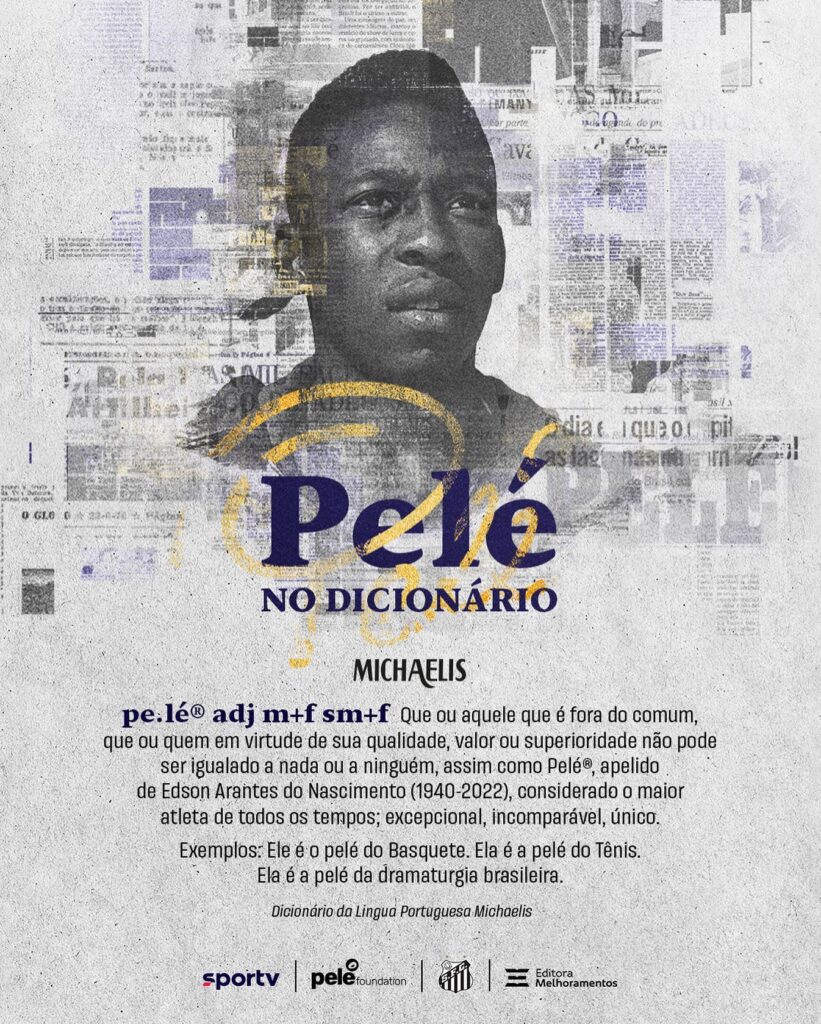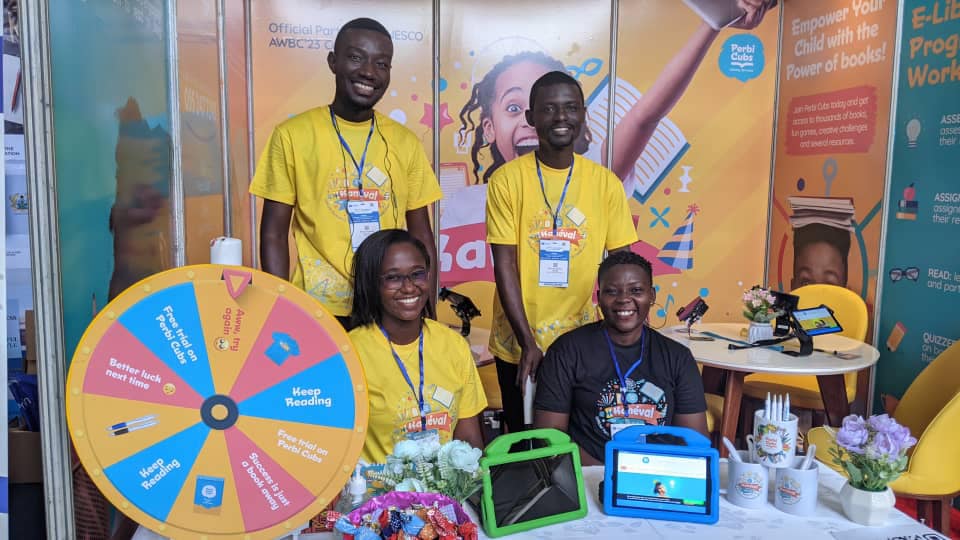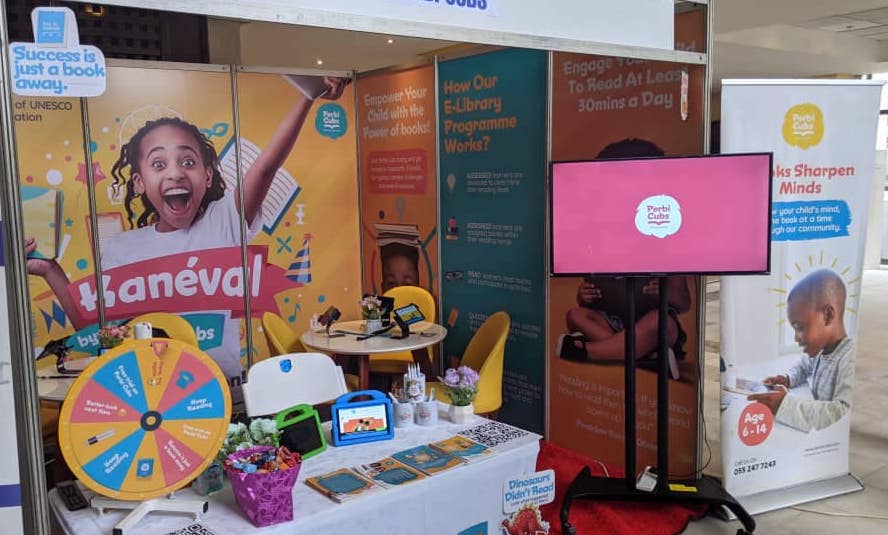
Introducing PELÉ (Perbi Executive Leadership Education).
Imagine a flourishing global ecosystem of authentic leaders characterized by healthy growth, holistic success and lasting significance. That’s the big dream and eternal hope fuelling our daily tasks at the Executive Education firm that bears my name, YAW PERBI. A couple of years ago, after eight years as President & CEO of a Canadian non-profit in the international education space and having garnered several years of executive leadership experience in the Ghanaian military and medical fraternity, global media, the United Nations in Cote d’Ivoire etc. I decided it was time to serve all of that to leaders of leaders: the C-suite. So I came out of sabbatical and stepped down as President of ISMCanada to do this.
Since according to my mentor of a quarter of a century, John C. Maxwell, by whom I’m officially a certified coach, speaker and trainer, that “one is too small a number to achieve greatness,” I have been steadily growing a global team of competent, caring, confident and character-based co-leaders on/from every continent in the world beyond myself to make our faith, sight. That journey has culminated in the birth of PELÉ.
A Play on Words
In keeping our focus on growing and coaching executive leadership to succeed, ever broadening the authentic relationships and resources we bring to bear on our task, we decided to move away from YAW PERBI specifically and to build Perbi Executive Leadership Education, PELÉ for short. PELÉ is not exactly just a happy coincidence, for as a once-upon-a-time football fanatic and soccer player for my elementary school, I recently engaged in my fair share of arguments about who the greatest soccer player of all time is between the shouts in favour of Lionel Messi after lifting the Qatar World Cup trophy on December 18, 2022 and the incessant calls to hallow the legendary Edson Arantes do Nascimento, better known by his nickname Pelé, who died eleven days later on December 29. As a double childhood hero—both of my dad and myself—I had been pondering a way to honour a Black man who gave everyone so much delight and so many people of his skin hue so much pride.
As I’ve stated before, “I am eager to particularly provide C-level executives of African descent with the paradigms, processes and tools necessary to maximize their potential, to be world class, take the world stage and make their dent in the universe.”
A Word In Play
Then came April 2023 when the Pelé Foundation and Sportv launched the “Pelé in the dictionary” campaign to pay tribute and recognise his legacy in other fields beyond sport. Of course his name has long been a synonymous with success and excellence, both of which are values of our Executive Education company, but now the great Brazilian forward and only human to have lifted three World Cup trophies officially had his name in the Portuguese dictionary. The adjective “Pelé” has been added to the Portuguese edition of the Michaelis dictionary to describe “someone out of the ordinary.”
Pelé, the nickname of the late football legend, has officially become tantamount to “extraordinary, exceptional, incomparable, unique.” Pelé is an adjective for something or someone that is out of the ordinary, one who by virtue of their quality, value or superiority cannot be equalled to anything or anyone, just like Pelé. For example, he is the Pelé of basketball, she is the Pelé of paediatrics.
What’s in a Name?
According to Emily Olson of NPR, “It was in the small, impoverished town of Bauru where he first got his nickname playing in youth leagues.” Apparently, even Pelé himself wasn’t sure where it came from, he wrote in a 2006 piece for The Guardian, but it may have been a play on Bilé, the nickname of a goalkeeper for the team Pelé’s father played on. “I can remember the name really bugged me at first. I was really proud that I was named after Thomas Edison and wanted to be called Edson,” he said. “I thought Pelé sounded horrible. It was a rubbish name. Edson sounded so much more serious and important.”
PELÉ by YAW PERBI is an Executive Education firm that offers authentic and customized relationships and resources to C-Level executives to grow personally, succeed professionally and become significant societally. To this end, the company provides Pelé services in leadership development, management training, executive coaching and publishing. Our Pelé coaching, authoring, speaking, and training are centred on LIFE—Leadership, Integrity, Family, Entrepreneurship.
Conclusion
We are PELÉ–extraordinary, exceptional, incomparable, unique–but more importantly, we form PELÉs, who are authentic, out of the ordinary executive leaders in every sector of life and all society’s centres of influence. As a forward-looking, authentic leader, if you want to dextrously dribble through LIFE and exceptionally hit goals like the legendary Pelé, you know where to look for the kind of coaching and training it will take: Perbi Executive Leadership Education (PELÉ). Like begets like.
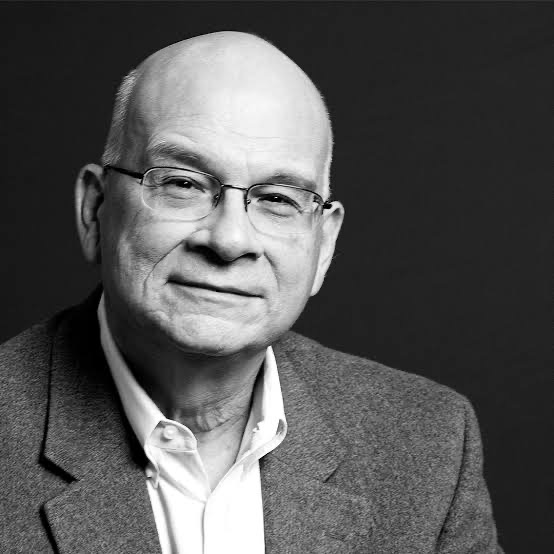
Tribute to Tim of my Table ~ Timothy Keller (1950-2023).
We first met on a table near the Table Mountain; I hope we meet again, in eternity, at a wedding table on a holy mountain.
In an emerging leader-affirming move, typical of The Lausanne Movement, my 32-year old self was appointed a table head at the Third Lausanne Congress on World Evangelization in Cape Town, South Africa. Imagine that. This was a gathering of the crème de la crème of Christian leaders from around the world, even described by some as “the most representative gathering of Christian leaders in the 2,000 year history of the Christian movement” (Christianity Today).
Each table had about half a dozen members. One of mine was Tim Keller. At the time, I had no clue who he was and quite frankly, couldn’t be bothered. Everyone was somebody. He wasn’t always at the table and even when he was there, he wasn’t quite there.
The Congress was over and everyone received their beautiful certificates of participation. Tim wasn’t there. Again. Apparently he had left back to the United States earlier. So I decided to travel back to Canada with his certificate, do an internet search of his whereabouts and mail his certificate to him in the States.
THAT is when I found out to my shock what a tall figure of a man this was! I eventually did get to speak with a staff and mail his memento to the right address (I would hope) in New York City. Rev. Dr. Tim Keller, founder and lifelong pastor of the 5,000-member Redeemer Presbyterian Church, was über brilliant and very deep—in head and heart. So deep that he had decided not to write any book till he was in his fifties. “Writing a book in your 50s will go twice as fast and be twice as good as if you try the same book in your 30s. It’s just good stewardship to wait,” he told The Gospel Coalition, which he was co-founder and Vice President of.
The other dimension I admired most about Keller was how ambidextrous he was in elucidating the gospel and engaging the culture, simultaneously! Stupendous! That, to me, was epitomized in his invitation to speak on his obviously Christian worldview book, ‘The Meaning of Marriage,’ at Google in Silicon Valley. Check out his presentation and responses to their questions and comments. Dr. Keller mentored many, near and far, in-person, in spirit and via media. Those around the world who were directly mentored through his Redeemer City to City should count themselves fortunate, blessed. I just spotted on Facebook a touching tribute from a pastor friend of mine from Brazil who recently planted a church in Rome, inspired and equipped by Rev. Keller.
As a latter day follower of Tim on Twitter, I admired the way he vulnerably yet resolvedly faced his imminent death, having been diagnosed with pancreatic cancer since 2020, a sequel to his 2002 thyroid cancer battle. All the while incarnationally demonstrating ‘The Meaning of Marriage’ through the dynamics with his wife of nearly 50 years, Kathy Kristy. Tim transitioned into glory on Friday the nineteenth (of May), 2023.
Dr. Tim Keller’s influence on the church and the world for Christ is deep and wide. I hope we share a table, again, at the grand, imminent marriage feast of the Lamb in eternity. Till then, Rest in Peace, champ! #Maranatha!

It’s the Family, Stupid.
Most people who are abreast enough with current affairs and know that “It’s the family, stupid” is a play on the famous slogan for the 1992 Bill Clinton election campaign (“It’s the economy, stupid”) will not know that today, and every May 15, is the International Day of Families. In my world it has never gained the popularity of, say, International Women’s Day. If it was so-scheduled to leverage Mother’s Day then it’s had the reverse, untoward effect of drowning it instead.
The Day was proclaimed by the United Nations General Assembly exactly three decades ago, in 1993, with resolution A/RES/47/237. According to the U.N., it’s supposed to reflect the importance the international community attaches to families, provide an opportunity to promote awareness of issues relating to families and to increase knowledge of the social, economic and demographic processes affecting families.
At Perbi Executive Leadership Education (PELÉ), we celebrate everything LIFE–Leadership, Integrity, Family, Entrepreneurship–and even currently have an ongoing Flourishing Families Masterclass running for the entire month of May. Whether it’s the more intensive Family Foundations Mastermind or the shorter and lighter Flourishing Families Masterclass, the following six perspectives are offered as a foundation for why family is ultra important (these are extracts from an e-booklet I’ve put together for the mastermind and masterclass):
1. CREATOR PERSPECTIVE | God is Family
God is family. Father-Son-Spirit. Note the familiar family terms, father and son. Having created humankind in His image and likeness to reflect on Earth what it is in Heaven, human family is huge deal. At the core of cosmos is a love relationship—Lover, Loved and Love itself. Everything rises and falls on love, everything rises and falls on God, everything rises and falls on family.
Of course, we could go into how God created the first family after declaring “it is not good for man to be alone,” how throughout scripture and history God chooses a person and their family to work through, the many scriptures that seek to protect, preserve and promote family etc. Even when God decided to wrap Himself in human flesh and move into our human neighbourhood in the person of Jesus Christ, he chose to implant himself in a family—Mary and Joseph’s. Everything rises and falls on family.
2. Centres of Influence | Every sphere is filled, fuelled and influenced by home
What do all of society’s centres of influence–Arts & Entertainment, Business, Science & Technology, Education, Government, Media, Religion–have in common: human beings! Without family there will be no human beings at all to fill, fuel and influence all these other centres. The only sphere that produces human beings is family. Most schools of thought include family itself as one of the centres of influence in society but I wonder whether family should even be included in the centres at all or just made to underlie all of them.
Family is literally the pivot of centres, symbolizing how everything truly revolves around it. Every centre rises and falls on family.
3. CRADLE PERSPECTIVE | Parents Shape World Shakers
Have you ever heard the proverb, “The hand that rocks the cradle rules the world”? That is 1865 wisdom unleashed on the world through the refrain of a William Ross Wallace poem that praises parenthood as the preeminent force for change in the world. Of course, at the time it was written, nearly two centuries ago, the work of raising children was mainly seen as the role of the mother but we know all too well it takes two to tango. Both father and mother have a role in rocking the cradle.
Parents, and the wider family, shape the people who would shake and move the world, for good or ill. These two PhDs, Barbara Riggs and Cynthia Tweedell, don’t mince words in their Marriage and Family textbook: “The strongest influence in your life will stem from family.” Period. Everything rises and falls on family.
4. CELLULAR PERSPECTIVE | Family is the basic unit of humanity
So yes, “it is the hand the rocks the cradle that is the hand that rules the world” but alas! today, everyone wants to change the world; no one wants to start at home. The irony! Not only does everything rise and fall on family because the hand that rocks the cradle rules the world, but also the family is the basic unit of society and humanity just as the cell is the basic unit of biological life or the atom is for all matter.
Yet somehow, we think we can flourish in the corporate world, government and such without adequately addressing the lowest common denominator! If you think one cell gone bonkers is no big deal, think again about cancer. That’s all it is. Individual cells gone bonkers, multiplying unhealthily—and eventually fatally spreading that craziness to other parts of the body (metastasis). Sooner or later a whole monarch or president or parent dies, all because of a cell gone awry. Everything rises and falls on family, that one cell.
5. CALCULATION PERSPECTIVE | Hindsight is 20/20
Today’s C-level executive claims, “It’s not the quantity of time but quality that I spend with my family that matters.” This is a fallacy. Family costs what it costs, and it doesn’t go on sale! The question is if we are willing to pay the price.
Even for the richest and most popular of leaders, when they assess their lives, doing a calculation of all they’ve spent their talents and energies, time and finances on, the truth remains that, “There’s no one who on their deathbed has been heard to say, “I wish I had spent more time at work.”
6. COVID-19 PERSPECTIVE | The only place to be/go has been home
When our all-important selves on our all-important endeavours were brought to a screeching halt by the recent Coronavirus pandemic, where did we all head? Home! When literally every economy and society locked down, where did we stay put and be safe: with family! I’ve never seen so many advertisements on primetime television asking people to stay home in my life! Heroes, according to the World Health Organization, stay home! Ha! Who would’ve thought that day would ever come?!
Even high-flying pilots have been grounded, literally, at home. At the time of first writing this down for the initial Family Foundations Mastermind we run during the pandemic, I hadn’t flown in a year—and that was incredible, considering that there were times in the last few years when I did as many as 70 flights in the year!
My VIP airport lounge passes and platinum airline and hotel statuses have been rendered useless. The only thing that mattered most was the people many of us paid the least attention to prior to COVID-19: family.
Crucibles reveal what’s most important. Now that this pandemic is over, we would need insignia to remind us, lest we forget, that everything rises and falls on family.
CONCLUSION
These are my compelling six cases for why family is absolutely a big deal, in every nation and generation. I long for the day when marketplace leaders will recognize the prime place of family and ensure their work(place) empowers families rather than diminishes them. “It’s the family, stupid.” Everything rises and falls on family. Happy International Day (Month is better) of Families.
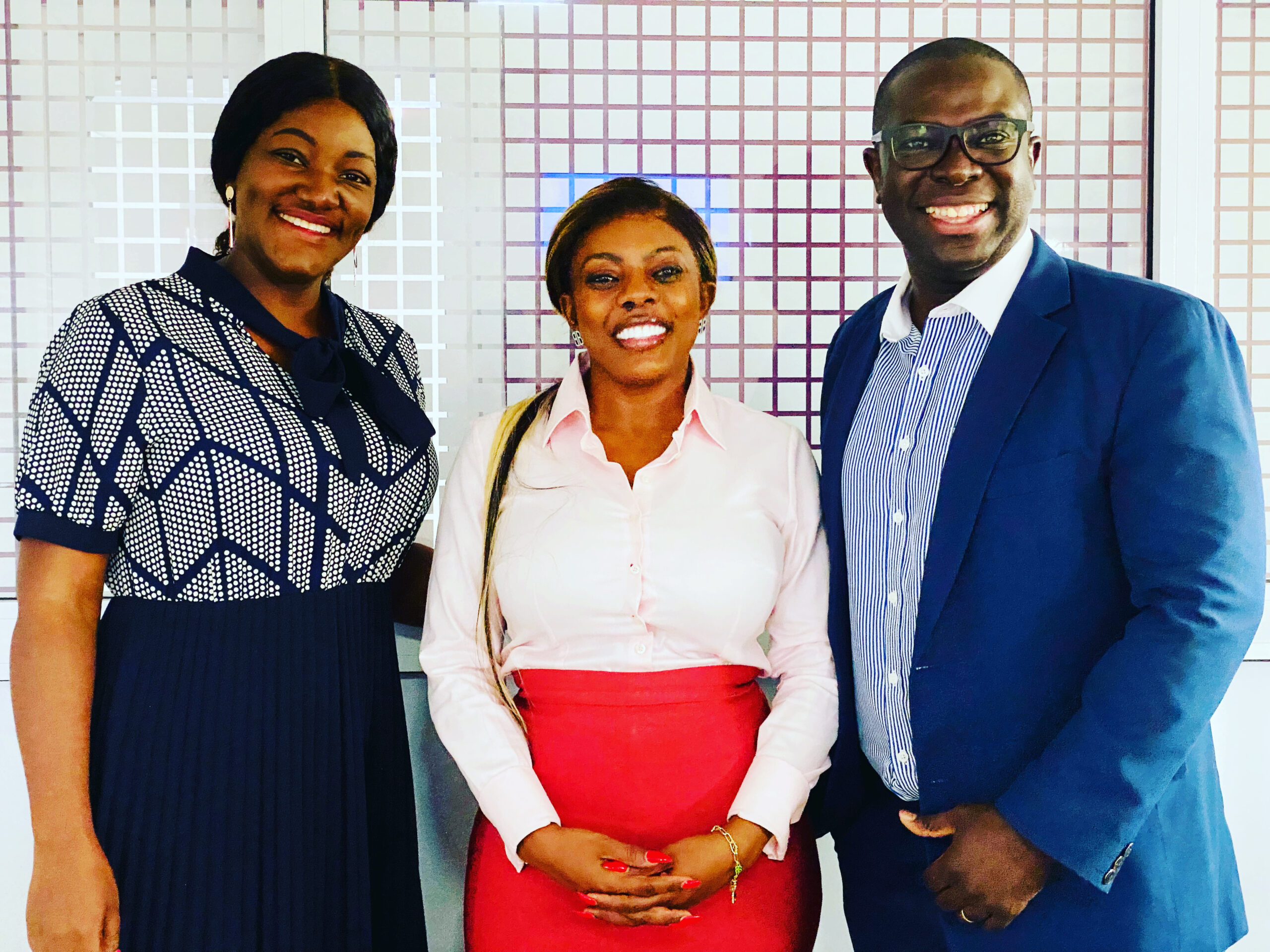
Of Kanévals, Kanébals & Kanévores.
Co-founders of Perbi Cubs sandwiching Kanéval partner-influencer, Nana Aba Anamoah, media personality & General Manager of GHOne TV/Starr FM.
This year, the capital city of Ghana where my wife hails from and where I was born has been named by UNESCO as its twenty-third World Book Capital. Accra takes over from Guadalajara, Mexico (2022) and will be handing the baton to Strasbourg, France come April 2024. Since ‘kané’ is the Ga word for read—and Ga being the language of the Accra people—Perbi Cubs Library services creatively replaced the near-homophonic ‘carni’ in ‘carnival’ with ‘kané’ and coined the word ‘Kanéval’ to bring fun to reading, which is otherwise unfortunately perceived widely as a bore and a chore.
As official partners of UNESCO Accra World Book Capital 2023 (AWBC ‘23), Perbi Cubs will be organizing Kanéval as a fantastic year-long program, a traveling fun fair transitioning from place to place with lots of amusements intertwined with lots of reading. You will find a fuller history of the UNESCO AWBC’23 partnership and details of the year-long fiesta here.
RESCUE FROM KANÉBALS
We are of the conviction that this Kanéval social service campaign needs to involve key influencers from all walks of life, from CEOs to Black Stars players to musicians, to consistently show that reading is fun and leads to success. The campaign will consist of various events in-person and online, including book fairs, storytelling sessions, and community outreach programs. By making reading fun and accessible, we can encourage more people to read and ultimately improve literacy rates in the community.
When we began approaching various influencers to join us on this reading revolution campaign, a massive behavioural change intervention, some of the stories we heard about the generally poor reading attitudes and habits of Ghanaian society were stupefying. We found kindred spirit in Nana Aba Anamoah (photo above), media personality and General Manager of GHOne and Starr FM, who unbeknownst to us had years back initiated a reading campaign known as ‘Raising Readers.’ She too had involved several influencers, including former Ghanaian president Jerry John Rawlings, to read with the children in a certain deprived area of Accra. Book donations in their thousands to the cause were a shot in the arm.
At some point it was clear parental involvement would bolster this behavioural change campaign. Some parent did accompany their children and wards to the reading sessions. Mostly reluctantly. In spite of these mostly illiterate parents sucking their teeth after only a little while, thinking of all the other more ‘productive’ ways they could be spending their time, Nana Aba and team pressed on. In fact, at the height of her intervention they had decided that once a week was not enough for the pace and profundity of the transformation they sought so they decided to leave books with the families and replace them when they returned the week after.
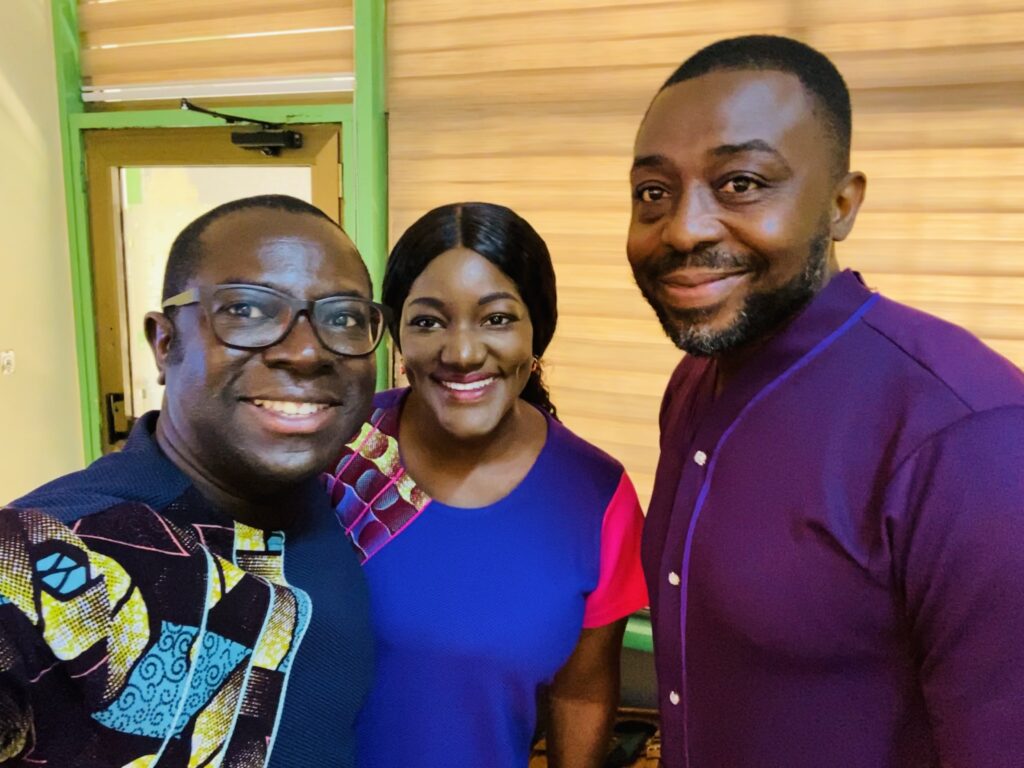
Cofounders of Perbi Cubs with yet another partner-influencer, Kafui Dey, author and GTV Breakfast host
All seemed well and good until the following week when some medical doctors on the Raising Readers campaign team who had gone down the road to grab some snacks returned with horror on their faces. When Nana Aba relates this story, she might not be aware but her face betrays the pain of the let-down she felt. The snacks that the team mates purchased in the catchment area had been nicely wrapped in freshly torn out pages of last week’s books! Kanébals (do you see what I’ve done with ‘cannibal’ and ‘kané’?) had dismembered the hitherto living literary friends, ripping them from their saddle-stitched and perfect-bound spines and repurposing the cadavers as food packaging. Ah!
When we related this story to another influencer on our bill, Kafui Dey (photo above), author and Breakfast host on GTV, he told us worse. Sometimes it’s pages of even the Bible that are Kanébalized for wrapping food!
WANTED: KANÉVORES IN THE KAPITAL
Perbi Cubs, convinced that readers are leaders and leaders are readers, has from inception sought to raise lion-leaders, hence the referral to our 10,000 young patrons as cubs (the young of lions) rather than the typical ‘kids’ (the young of goats).
By the end of the year-long Accra World Book Kapital, we seek to have enrolled an army of at least 100,000 cubs who are voracious readers, Kanévores. If carnivorous lions are the king of the jungle, we imagine that Kanévores rule the world.
KALL TO ACTION
According to UNESCO, as of 2021 only 6% of children in classes two and three in public basic schools could read and understand anything they read. Lack of sufficient reading resources and very large class sizes are among the root causes of the problem, but the overarching root cause is that society does not value reading. Reading is seen as a chore, a punishment or even a necessary evil! Yet per credible research, the love for reading is a stronger indicator of a child’s success in school and their future career than even their parents’ level of education and their socioeconomic status.

With media personality and reigning Ghanaian Journalist of the Year, Portia Gabor, at the TV3 studios in Accra. Portia’s partnering Perbi Cubs for this vital social intervention, Kanéval!
Join us in promoting the joy of reading and improving literacy rates in the community, particularly among children in public basic schools, by becoming a partner for Kanéval. Together, we can make a real difference in the lives of our community members and future generations. Let’s celebrate and make the most of Accra’s selection as UNESCO World Book Capital 2023.
KONCLUSION
Accra has been selected as UNESCO World Book Capital 2023 and Kanéval is a one-year social service campaign organized by Perbi Cubs, as official partners of UNESCO AWBC 2023, to celebrate this achievement and promote the joy of reading and improving literacy rates in the community.
The success of the campaign depends on a coalition of all stakeholders in the book industry, influencers, and strong partnership with the media. Together, through massive Kanévals all year, we can raise Kanévores and end apathy towards the written word that results in Kanébalism and the like. May readers rise and leaders come to light to transform society and impact the world—from Africa to the Rest.

Confluence for Influence: Kanéval by Perbi Cubs Leverages UNESCO’s Accra World Book Capital 2023.
Exciting news! Perbi Cubs Library Services is teaming up with the United Nations Educational, Scientific and Cultural Organization (UNESCO) and the Ghana Book Development Council, among others, to celebrate Accra World Book Capital (AWBC ’23) as official partners. Accra, the capital city of Ghana, in West Africa, is the 23rd city in the world, and only the fourth in Africa, to have the honour of this title which UNESCO initiated in 2001 to promote literacy globally. This is akin to a literacy World Cup title, only it is bestowed annually.
The World Book Capital is an initiative of UNESCO which recognizes cities for promoting books and fostering reading for a year, starting on April 23, World Book and Copyright Day. UNESCO adopted the 31 C/Resolution 29, in 2001, establishing the World Book Capital (WBC) programme. Cities designated as UNESCO World Book Capital pledge to carry out activities with the aim of encouraging a culture of reading and diffusing the values of literacy, lifelong learning, copyright, and freedom of expression in all ages and population groups, both within and beyond national borders. The first city to be awarded was Spain in 2001 and Accra’s turn is sandwiched between Guadalajara, Mexico (2022) and Strasbourg, France (2024).
The UNESCO World Book Capital Advisory Committee, which evaluates bids to win the title, comprises representatives of the International Publishers Association (IPA), the International Federation of Library Associations (IFLA), the International Authors Forum (IAF) and UNESCO. Past capitals include Madrid (2001), Alexandria (2002), New Delhi (2003), Anvers (2004), Montreal (2005), Turin (2006), Bogota (2007), Amsterdam (2008), Beirut (2009), Ljubljana (2010), Buenos Aires (2011), Erevan (2012), Bangkok (2013), Port Harcourt (2014), Incheon (2015), Wroclaw (2016), Conakry (2017), Athens (2018), Sharjah, (2019), Kuala Lumpur (2020) and Tbilisi (2021).
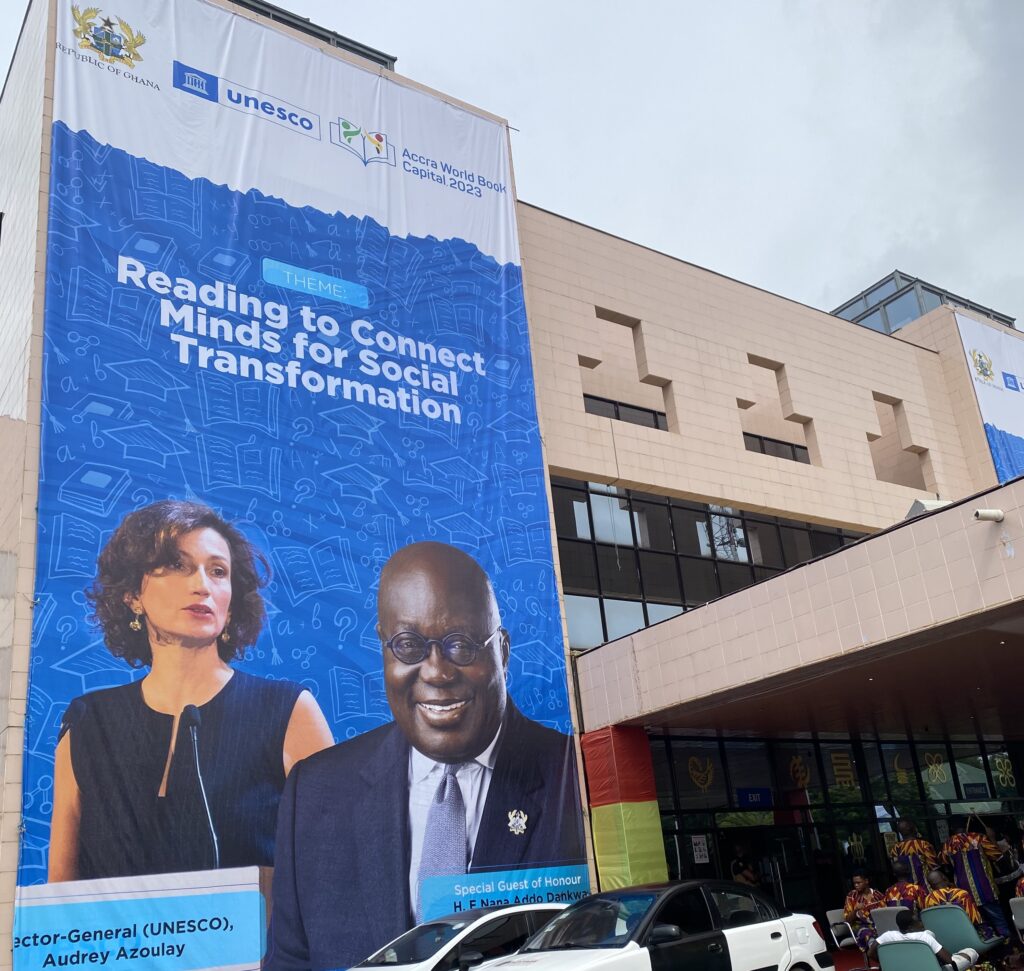
The grand opening ceremony of Accra World Book Capital at the Accra International Centre by the President of the Republic of Ghana
THE GHANA JOURNEY
Accra’s first attempt to win the 2019 World Book Capital title, after the idea was mooted in 2016 and working towards that, failed. Accra relaunched the bid in April 2021 and won it. The executive board of UNESCO, at its 215th session in Paris, France, on September 22, 2021, named Accra the World Book Capital 2023, following evaluation by the World Book Capital Advisory Committee. This was no mean achievement for the ten-member bidding team representing the Accra Metropolitan Assembly, Ghana Commission for UNESCO, Ghana Library Association, Ghana Publishers Association, Complementary Education Agency (formerly Non-Formal Education Division), Ghana Association of Writers, and the Ministry of Foreign Affairs and Regional Integration and chaired by Mrs Ernesticia Lartey Asuinura, the Executive Director of the Ghana Book Development Council (GBDC). Several internal staff of GBDC were behind this successful bid and must be applauded.
According to UNESCO, “the city of Accra was selected for its strong focus on young people and their potential to contribute to the culture and wealth of Ghana. Accra’s proposed programme seeks to use the power of books to engage these young people, as an effective way of skilling up the next generation.” Earlier this year, on April 11, the Minister of Education of Ghana, Dr. Yaw Adutwum, held a press launch of AWBC’23 at which Perbi Cubs was represented by the Founder and CEO, Mrs. Anyele Perbi. He explained that Accra was selected ahead of other cities because the Education Ministry’s programmatic focus was on young people and their ability to contribute to the culture and wealth of Ghana through the power of reading. “Research shows that reading improves the learning outcomes of students in schools,’ said the Minister. “That’s why in certain schools around the world, they’ve implemented and employed the ‘Drop Everything And Read’ – ‘DEAR’. So if it’s 15 minutes, 20 minutes a day, children are made to stop everything and read,” he illustrated.
Dr. Yaw Perbi, Global CEO of The HuD Group and Co-Founder of Perbi Cubs, and Mrs. Anyele Perbi , Founder and CEO of Perbi Cubs, were invited and did attend the grand opening of AWBC ’23 by the President of the Republic of Ghana, Nana Addo Dankwa Akufo-Addo, and the Director-General of UNESCO, Madam Audrey Azoulay Ayoub, at the Accra International Conference Centre. The theme for the occasion was ‘Reading to connect minds for Social Transformation’. It was encouraging interacting with school children as well as top academics at the Perbi Cubs booth, including members of the Ghana Academy of Arts and Sciences. Visiting the exhibition booths of other players in the literacy space was also invigorating but nothing beat the joy of seeing the attending school children flock to the Perbi Cubs stand to sample for a few minutes the thousands of books on their online platform.
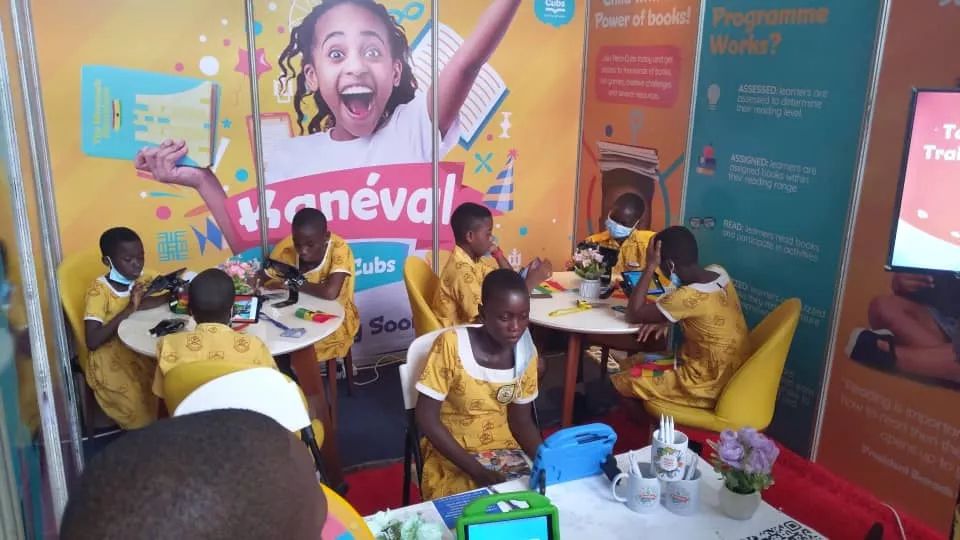
Several groups of school children practicalized the whole point of AWBC by doing actual reading at the launch
Under the theme ‘Reading to connect minds for social transformation’ the programmes planned for the title year will focus on particularly the youth and vulnerable groups in Accra (and Ghana at large) such as children, underemployed women, head-porters (kayayei) and persons living with disability, to equip them with literacy and employable skills, while promoting the rich Ghanaian cultural heritage and the book industry in Ghana.
THE PERBI JOURNEY
Both Yaw and Anyele Perbi (née Ampa-Sowa) come from homes full of books. In fact, they got to know each other as children of professors at the University of Ghana campus. Anyele’s dad was an Economics lecturer and Yaw’s mum, a history lecturer. In their growing up years Yaw’s own dad, being a long-time member of the board of Challenge Bookshop, would receive loads of books every year, feeding their home library fat.
Tracing the history of books even further, Yaw’s maternal grandfather was not only an author and professor of African Studies and Ethnomusicology at the same university, but also together with writer and educator Dr. Efua Sutherland organized the first international book fair in Ghana in the early 1970s and proceeded to come together to found Afram Publications a couple of years later, incorporating it in February 1973. Emeritus Professor J.H. Kwabena Nketia was his name.
The Perbi household buzzed with books and moments like when the floating bookshops, the MV Doulos or Logos ships, would berth at the Tema Harbour were fun galore. Meanwhile, Yaw did not like reading as much as Anyele in their early years on the Legon campus. Anyele LOVED reading to the point that the rate of buying books for her and her two brothers was threatening to bankrupt her parents. When she was missing from the house you could be sure she was immersed in a book somewhere!
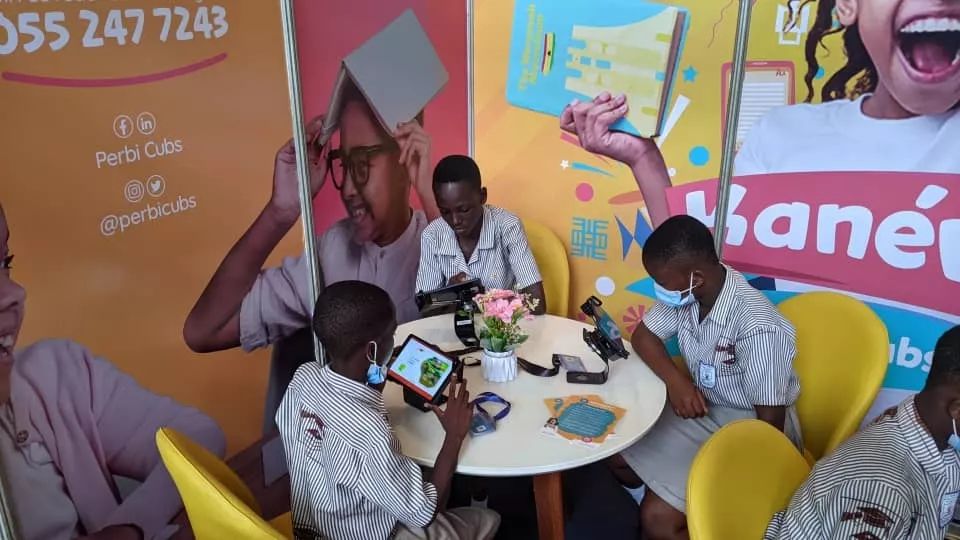
At the intersection of age old reading and new technologies stands Perbi Cubs’ online digital reading platform and offerings
Two jerking statements changed Yaw’s attitude towards books. The first was, “If you want to hide something from a Black people, put it in the book.” You may read the full story here. Fascinatingly, by the age of twenty-three, Yaw would write and publish his first book, What Every Fresher Should Know about University, and as an internationally-recognized author of some twenty books and several book chapters, journal articles etc. now, as they say, the rest is history. Today, one of his punchy books called Read! is subtitled: “You are ‘illiterate’ if you can read but don’t.” Dr. Perbi’s 2015 Thinking Outside the Window was even an Amazon bestseller in its category. His latest book, co-authored with a Kenyan and published in March 2023, is entitled Africa to the Rest. In it, Yaw stresses the need for Africans not only to read but also to write. “Until the lion learns to write,” he reminds us, quoting an old African wise saying, “every tale of the hunt will glorify the hunter.”
When Yaw founded The HuD Group in 2003, one of its first divisions was a library called The Mine (it still runs at the Staff Village of the University of Ghana). So for at least two decades now, Dr. Perbi has been a fierce reading campaigner. And now in tandem with the erudite Anyele, he likes to say “my wife and I have stepped up by stepping down.” What he means by that is, they’ve enhanced their reading campaign (stepped up) but decided to go further down to the age where humans are most pliable: childhood (stepping down). And they began with their our own seven children in the French city of Montreal, Canada which happens to have been the UNESCO World Book Capital in 2005, four years before they would dwell there as a family for the next dozen years. Their own children’s love for reading, the generous 40 books per person supply of the Pierrefonds municipal library across the street from their West Island home and an imminent eight-month visit to Ghana that threatened to stifle this Perbi reading culture combined to birth the Perbi Cubs Library Services. You may find the story and philosophy behind Perbi Cubs here.
AND NOW, KANÉVAL
According to Perbi Cubs CEO, “We are excited to inform you that Perbi Cubs, in partnership with UNESCO Accra World Book Capital 2023, will be organizing a fantastic year-long program. Watch out for Kanéval as it moves round throughout the year, to your school or community. Stay tuned on the various Perbi Cubs social media handles like Facebook, Twitter, LinkedIn and Instagram for more updates.” Kanéval by Perbi Cubs, a season of fun, inspiration, and BOOKS, is launching in Accra on May 11, 2023.
As long as reading remains a chore, we’ll have a problem promoting it. But who doesn’t love a good festival, a carnival? What if we could think outside the box and bring together the idea of a traveling amusement show with merrymaking sideshows, rides, etc. with reading? What if face-painting or getting on a swing was a reward for reading a book? These are some of the disruptive ideas that incubated and eventually hatched Kanéval. The idea of Perbi Cubs in general and KANÉVAL in particular, is to bring FUN to reading while strongly brandishing the connection between reading and success in life.
In the spirit of innovation and creativity, Perbi Cubs values, the coined word Kanéval was inspired by the word for read in Ga, the language of the Accra people, Kané. So combining ‘Kané’ with the English word ‘carnival,’ here we are! There will be lots of fun, reading and other educational activities. Perbi Cubs is grateful to several Ghanaian influencers like Nana Aba Anamoah (media personality and General Manager of GHOne TV and Starr FM), Bernard Avle (Citi Breakfast Show host and General Manager of Citi FM), Kafui Dei (author, speaker and GTV Breakfast host), Portia Gabor (TV3 hostess and Ghana Journalist Association’s reigning Journalist of the Year), Gwen Addo (entrepreneur, author and CEO, The Hair Senta), Giovani Caleb (media personality, radio and TV), Gifty Anti (author, media personality, celebrated journalist) and others who are synergizing with them to take the culture of reading to the next level to transform the fortunes of Ghana and Africa.
Perbi Cubs’ Kanéval is scheduled to take off on 11th May, 2023 at Alpha Beta Education Centres and then to all their partner schools and other communities, particularly deprived ones badly needing a literacy intervention. Kanéval is not just for our Cubs but all our stakeholders including you. There are many activities you can join in with exciting prizes. Kanéval awaits you for a Kanévalistic experience. Kanéval – Reading is fun!!! The amazing part is that in collaboration with various partners, Perbi Cubs is offering huge discounts on their subscriptions so that every Cub in their partner schools can read this year!
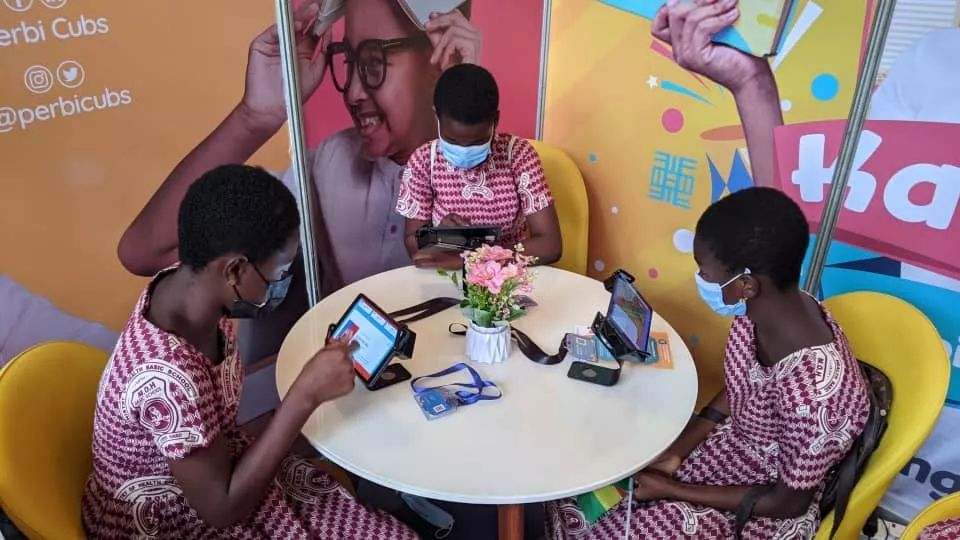
Perbi Cubs has served about 10,000 children so far and is set to scale that in this AWBC year to 100,000
WE HAVE A PROBLEM
Kanéval is fun about something serious. And Ghana in particular has a problem that isn’t funny. As a society we do not value reading enough. If research has proven that the love for reading is a stronger indicator of a child’s success in school and prosperity in life than even their parents’ socioeconomic status or level of education, then we should be worried that only 6% of Ghanaian children at classes two and three can read and understand what they read (UNESCO 2021). Meanwhile the World Book Capital Network (WBCN) acknowledges and reminds us of the power of books and reading as cornerstones to more inclusive, peaceful and sustainable societies. Thus as they rightly put it at Perbi Cubs, “Success is just a book away,” be it personal or national.
Let this be the year we all got dead serious about raising the tide (the general level of literacy) that lifts all the other boats, all sectors and subjects, including STEM. O that the confluence for influence between Kanéval by Perbi Cubs, influencers like those cited above and all other players in the UNESCO’s Accra World Book Capital 2023 space will do the trick. Let’s get on with this serious business, having fun along the way. Kanéval it is!
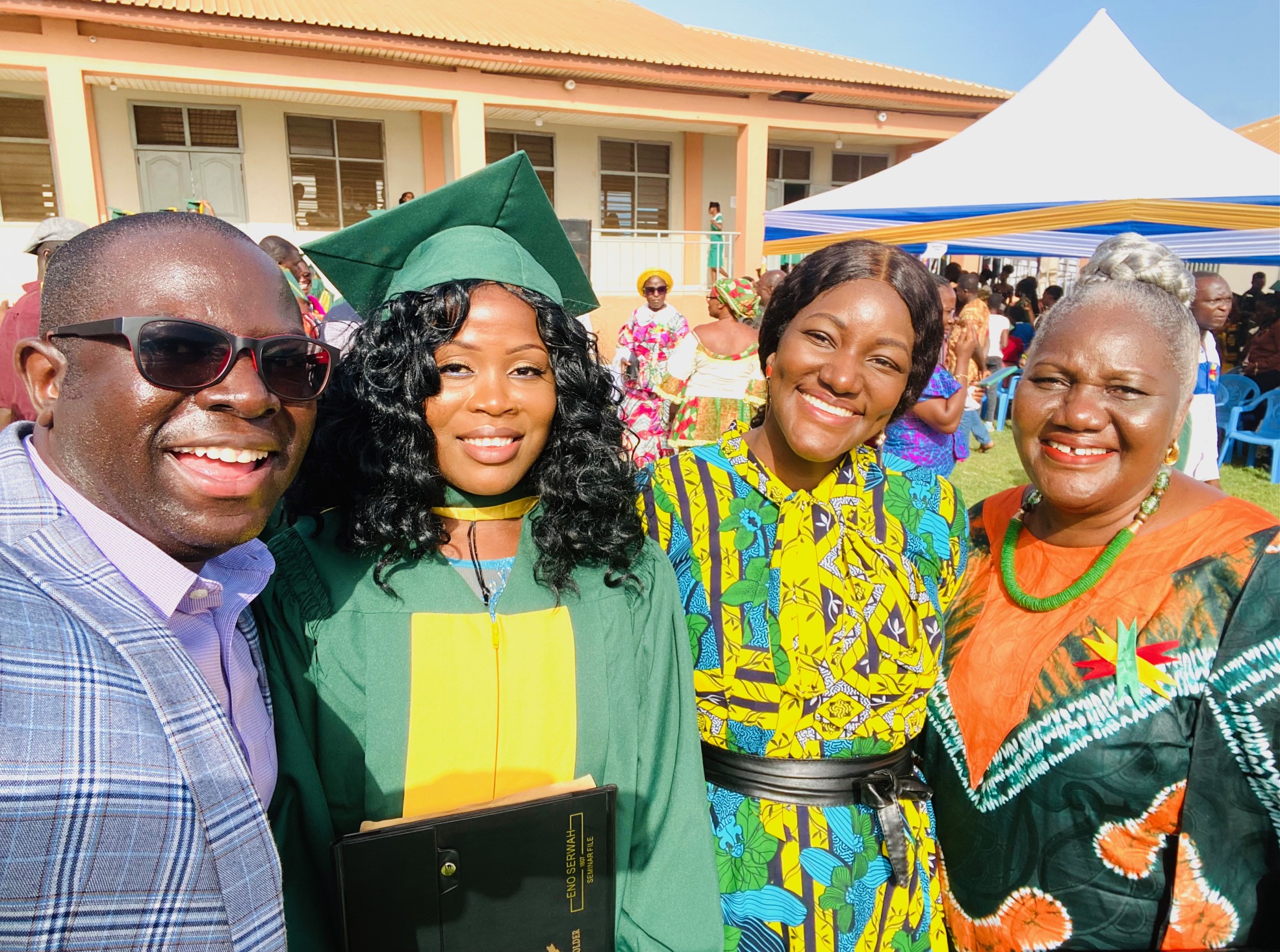
The Way Up is Down.
At Easter, I threw a challenge to the leaders in my network: lay down yourself for someone else’s uplifting. This challenge was triggered by inspiration I received when I had just returned from a college graduation the week before Holy Week. Although it had been a season of graduation ceremonies in Ghana across many tertiary institutions, this was a special one, a very special one.
About six years ago, our family travelled to Ghana from Canada on furlough. We had planned to stay the entire period at my parents-in-love’s residence in Accra. Being a reasonably big-sized big family (the children weren’t even seven yet!) we obviously needed some domestic assistance. We were glad to welcome a promising young lady, Benedicta, as our new house help after a couple of failed trials.
As we lived with her and observed her initiative, diligence, smartness, humility, kindness and care we took an extra interest in what her ultimate dream was. She had the potential to be like any one of us high income, high impact professionals and not necessarily having to be confined to a vocation of domestic assistance her entire life. We found out about her high school final grades and thought they could be improved. And so we (my wife and I, parents-in-love and other family members) decided to invest in her, everything from extra classes through re-sit examinations. Even when she was finally given a shot at college my mother-in-law would get her books and do mock interviews with her to prepare for the entrance interviews. Long story short, she made it into nursing college.Now, that is the graduation we went for that day.
Today, Benedicta is a nurse. She graduated from the Nurses & Midwives Training College in Teshie, Accra, Ghana. From house help to nurse; and that is what brought me to the Easter challenge because at Easter, we see the ultimate leader Himself laying down His life for the people He saw value in. At the risk of sounding holier-than-though, the previous family she left to serve ours was just about to invest in her to be a fried pork seller by the street.
JOHANNINE CHALLENGE
Everybody knows John 3:16: “For God so loved the world that He gave His one and only Son, that whoever believes in Him shall not perish but have eternal life.” But what a lot of people who are not schooled in Trinitarian theology don’t realize is that this scripture is basically saying that God so loved the world—God so saw value in you and me—that he gave Himself for us, because God is Father-Son-Spirit. The ultimate leader laid down Himself for our uplifting.
PAULINE CHALLENGE
This giving of Himself or laying down His life for us is spoken of by St. Paul’s to the Church in Philippi in such humble and humbling terms. He begins in Philippians 2:5 by exhorting that “your attitude should be the same as that of Christ Jesus.” Let’s take Eugene Peterson’s contemporary version:
5-8 Think of yourselves the way Christ Jesus thought of himself. He had equal status with God but didn’t think so much of himself that he had to cling to the advantages of that status no matter what. Not at all. When the time came, he set aside the privileges of deity and took on the status of a slave, became human! Having become human, he stayed human. It was an incredibly humbling process. He didn’t claim special privileges. Instead, he lived a selfless, obedient life and then died a selfless, obedient death—and the worst kind of death at that—a crucifixion.” [1]
Wow! God becoming a man was not just humbling, it was humiliating. Yet even when formed and found in appearance of a human, he could’ve been a very proud man but no! He was down-to-earth and mingled with tax collectors and ‘sinners’. In fact, it was on the night he was betrayed–during Holy Week–that He washed his own disciples’ dirty and stinky feet and wiped them with a towel around his waist.
The way up is down, for because of this humble attitude and action, “God lifted him high and honored him far beyond anyone or anything, ever, so that all created beings in heaven and on earth—even those long ago dead and buried—will bow in worship before this Jesus Christ, and call out in praise that he is the Master of all, to the glorious honor of God the Father.” [2] Even those who are not voluntarily honoring Jesus now will bow one day, compelled. All shall bow to the one who first bowed the lowest and is now raised the highest.
YOUR CHALLENGE
As a leader, I want to challenge you to choose one person, choose one thing to do this month (we’re still in the month of Easter) that involves laying down your preference, time, or money, sacrificing something, dying a little so that someone can live, graduate, have a better life etc. I challenge you to do that because that is the essence of ultimate leadership. Leadership is not about us, it is about those who take inspiration, follow, and learn from us who we get to empower and guide; those around us.
It’s sad to see so many places in the world, especially in Africa, where government official think it is all about them. Unfortunately, even in the church there are a myriad instances where pastors are doing extremely well socioeconomically and there are congregants who are not faring well, at all. Sometimes these leaders are literally fleecing the people, milking them dry till they bleed. That’s not leadership at all, and certainly not servant leadership. Leadership is laying down our lives, laying down our gifts so that others will be blessed. It is going down to pick the downtrodden and lifting them up.
Cecelia Chan poignantly put it this way: “Instead of laying a red carpet for yourself to walk on, lay a bridge and let the young people walk over to you.” This is my challenge to you, at Easter and beyond: lay down yourself for someone else’s uplifting. God bless and honour you too as you learn to lead like Jesus.
References
[1] Philippians 2:5-8, The Message
[2] Philippians 2:9-11, The Message
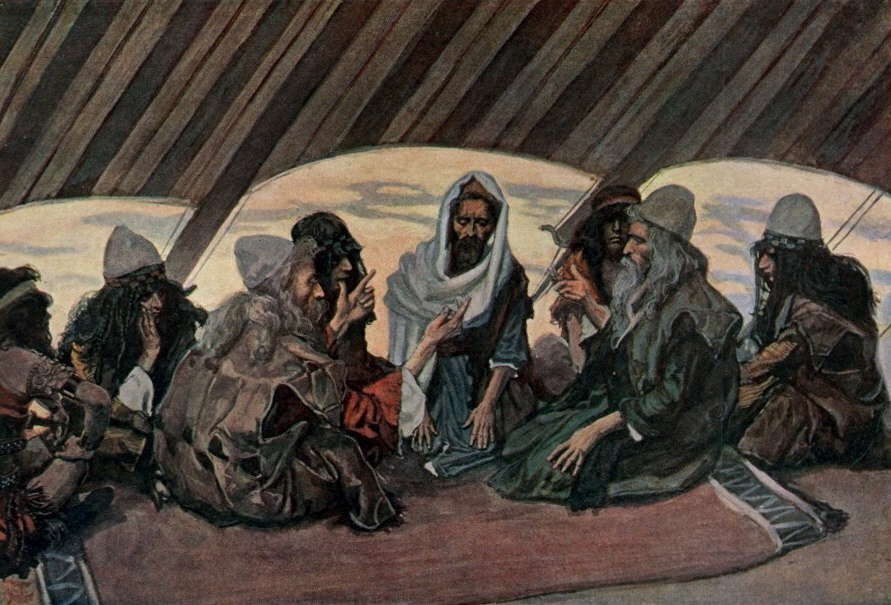
Competence is Character.
Photo credit: Jethro and Moses, watercolor circa 1900 by Jacques Joseph Tissot (1836–1902), courtesy of Wikimedia.
While a lot of #leadership thinking is that leadership comprises #competence AND #character, for others like Jethro of Midian, competence IS character. Discuss.
For the Eager Beaver:
“Listen now to me,” Jethro advised Moses his son-in-law regarding leadership delegation, “Select capable men from all the people–men who fear [revere] God, trustworthy men who hate dishonest gain–and appoint them as officials over thousands, hundreds, fifties and tens” (Exodus 18). Jethro, also known as Reuel, was a Kenite shepherd and priest of Midian.

The Fathers’ Appetites Have Soured the Children’s Futures
The following slightly edited version of this article was first written and posted on Dr. Yaw Perbi’s FaceBook wall on January 31, 2023. At the time, that last day of January was the deadline to tender in eligible Government of Ghana bonds in the controversial Domestic Debt Exchange (DDE). There have been scores of passionate responses to the trending article that we have decided to reproduce it here so people are able to document these for posterity.
I am pained that, ‘The fathers have eaten sour grapes, and the children’s teeth are set on edge’ (Ezekiel 18:2). For over 20 years now, The HuD Group and I have championed a culture of savings and investments in Ghana, and had the JOY of seeing thousands heeding the call, especially young people. Financial Whizzdom, is what we called the campaign.
I wrote three personal finance books and executed a triple launch of Financial Whizzdom, Financial Whizzdom Nuggets (a summary) and Financial Whizzdom through Investment Clubs. It was around that time that Uncle Ken became a mentor to me. He was intrigued that a medical student would be so adept at the world of finance. He not only loaned us some money to finish the project (which we fully paid back within three months or so) but he also passionately spoke at the triple launch. The year was 2004.
Many like-minded people came together to push a savings and investments culture among young people. We traveled the length and breadth of Ghana, doing several seminars and workshops. Medics Investment Club (which really is the first investment club in Ghana per the National Association of Investment Clubs definition) became a model for many who also started their own investment clubs around the country, from university campuses and nursing training colleges to even secondary schools. No wonder I’ve been christened “the grandfather of investment clubs in Ghana.”
The many who wanted to join our investment club at the University of Ghana Medical School but who couldn’t (we had set the maximum for 20) were mobilized into a collective investment scheme we called ‘Mutual Medics.’ At the peak we grew to about 300. We sacrificed student loans, ice cream money and even extra-curricular fun and entertainment to save for our future. Almost none of us have withdrawn the monies we invested almost two decades ago.
Today, January 31, 2023, is the deadline for the trustees of this mutual investment scheme we set up way back in our medical school days to inform Databank for sure whether or not to tender in our eligible bonds in the Government of Ghana’s Domestic Debt Exchange (DDE) debacle. Our fund managers had 70% of the total value of the fund in government bonds, which in normal times and normal places with normal people are supposed to be very low risk, even tempting some advisors to say ‘no risk’ (nothing is ‘no risk,’ not even life itself!).
This DDE is supposed to be a voluntary move but in reality it is a case of “choose your poison.” If you drink this one you will die, if you drink the other one, you will surely die. I am pained for myself, colleagues, fund managers, and the whole investment fraternity in Ghana, especially the younger generation. How did we get here? Indeed, ‘The fathers have eaten sour grapes, and the children’s teeth are set on edge.’
Even more heart-wrenching is that if this should happen under any Finance Minister’s regime, not under the watch of the very mentor who, as far as I know, has spent his whole life building the very financial culture, structures and systems that seem to be now crumbling at his hitherto dextrous hands. The irony.
I am pained. Very much. Whoever has eaten our money, killed our dreams, buried our hope and compelled us to come for unfashionable haircuts that make us look like our misery will have to make it up to us, somehow, even if it is their children or their children’s children. In the mean time, ‘The fathers have eaten sour grapes, and the children’s teeth are set on edge.’ Ah!
~By Dr. Yaw Perbi
Photo credit: Opinion Nigeria
Post Script
We shall do well to document as many of the responses we’ve garnered so far as possible. This issue warrants a national conversation, at the least. A national demonstration for all those equally pained might also be in order to send a strong message to the current government, who in spite of all the pain they are inflicting on the citizenry, have shown no significant sense of regret, repentance or even austerity.
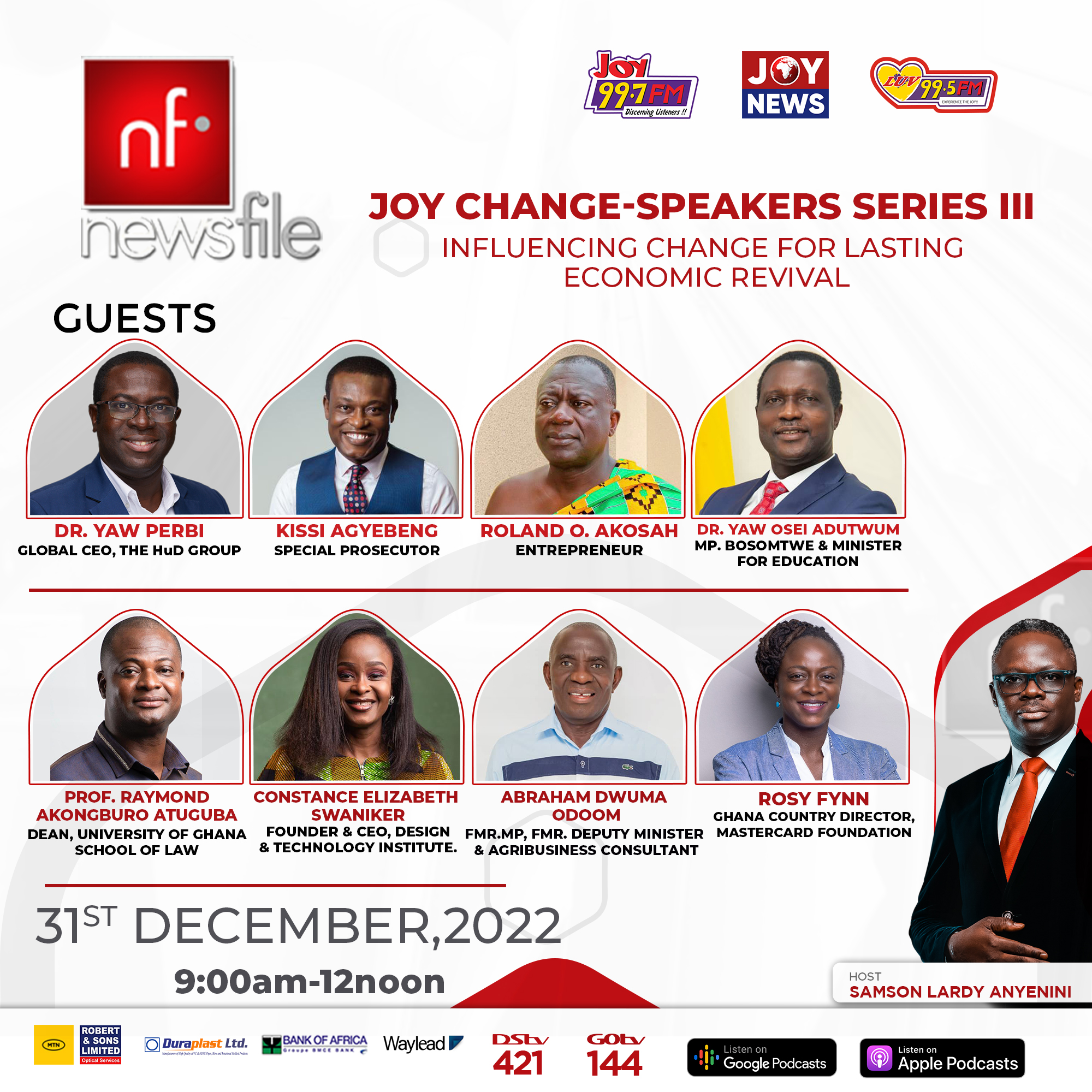
OFFICIALLY BROKE AND CERTIFIABLY MAD: Proposing a Politico-Economic Cure Towards the Ghana We Want.
The prophets are as mad as the politicians and public servants—even madder are the people who make them lead the masses further into hell.
Dr. Yaw Perbi
Global CEO, The HuD Group
INTRODUCING MY MADDEST PATIENT, EVER
Let me tell you about the maddest patient I’ve ever seen in all my medical practice, Anahg. As we speak, she is at post-retirement age, about 65, still uncured, but I have been seeing her since age nine. As a scientifically trained person I’m not one to be superstitious but I surely do acknowledge spiritual realities. Twenty-eight years before she was even born, one of her maternal uncles warned that unless certain practices were carried out and others eschewed, she will never progress in life. Born she was, yes, even first-born; but progress, no. Anahg was born alright to festivities galore, but she has been brought in several times since nine, since that first time she started going gaga, ostensibly due to a self-inflicted blow to the head.
Ever since that initial attempt at self-harm she has proven that her gross mismanagement of her otherwise well-endowed self with a concomitant addiction to things she would be better off without are her undoing—sometimes she’s prostituted herself, but most often rather borrows and gambles, to get a fix. I cannot count on my fingers anymore how often she’s been wheeled in as a complete mess—my last count was 16 or 17 times to my facility alone (who knows of others?). Every time she leaves my consulting room she does the same things that brought her back on admission the previous time—after she’s promised “never again.” And this is the part that blows my mind (and perhaps I’m mad too): she does the same things over and over again and somehow she expects different results.
Her self-mismanagement can be as funny as wearing shoes before her socks and her underwear over her skirt or as serious as, on her way out of home, locking her children in the house behind the door all day, supposing she had rather locked the door after them (yes, she’s had many children with as many men). She thinks her children are weird and insane; not her. And her delusions of grandeur are of the kind I’ve hardly come across: as a self-anointed Royal, in her mad mind she has tea with the Queen of England at 4pm daily without fail and wonders what all the fuss is about Lionel Messi, Pele and Christiano Ronaldo when she is the GOAT—Greatest Of All Time. While she may sing “How Great Thou Art” to herself, everyone else knows she’s certifiably mad…and broke too.
I could tell you more about Anahg but let me stop here and ask you: what predominant emotion did you feel as you heard about this client? What do you propose I should do next as her doctor?
PARABLE PUT PLAIN
Well, Anahg, A-N-A-H-G, is actually Ghana spelt backwards. Born in 1957, her first visit to the IMF was after the 1966 coup d’état. We don’t have the luxury of time to delineate the details of all the 17 visits to the IMF (sometimes more than once a year) but suffice it to say that our taste for free services, the high-time life (especially big cars, luxurious mansions and fat ex gratia for our big people), mismanagement, unleadership, addiction to foreign goods and insatiable appetite for debt—domestic and external—have been our undoing. And our sense of self-importance is through the roof, largely living more on past glories than current exploits. And yes, our gross mismanagement is as hilarious as prioritizing entertainment when we haven’t earned a break from any hard work or as annoying as finishing an asphalt road, then immediately after breaking it to install a pipe across it, underneath. Headless.
If you think we’re doing well, you are part of the problem—as a people, we are just too easily satisfied with minimal public progress. See how we stage a funfair over the commissioning of infrastructure, not caring a hoot about what the superstructures shall be, that ‘infra’ by nature is only foundational. Yes, thank God for electricity, water roads and bridges but these are built so that… what??? Somehow our insatiable appetite for the best and the most progressive is only for personal and private benefit. Believe it or not, it was in 1929 in the Gold Coast, nearly three decades before independence, when Dr. Ephraim Amu warned us about greed, selfishness and conceit. “So will our nation succeed or always suffer from greed, on what we do today depends our future way,” goes one translation of his Y3n Ara Asaase Ni chorus. Think about it: he composed it in 1929 even before we became Ghana.
DELUSION DEFINED
Why are we mad? “The definition of insanity is doing the same thing over and over again and expecting a different result.” Most famously attributed to Albert Einstein—and to other individuals and groups like Alcoholics Anonymous—there is no substantive evidence that Einstein wrote or spoke that statement.[1] While we cannot agree on who formed that definition of madness we can agree that the diagnosis is sound. Seventeen times to just the IMF between 1966 and 2022, doing the same thing over and over again and expecting a different result, dare we say we are not mad?
Fortunately, we know the cure (I’ll come to that shortly) but we must begin our own “Twelve Step” process like Alcoholics Anonymous, an organization designed to help addicts and their families. Step 1: They admit they are powerless over alcohol—that their lives had become unmanageable. Step 2: They come to believe that a Power greater than themselves could restore them to sanity.
The story is told that an attendee at one such meeting hesitated to accept the accuracy of the second step. Not all the women were willing to admit they needed to be “restored to sanity.” In fact, one of them adamantly maintained that she had never reached a point of insanity. But another remarked, “Insanity is doing the same thing over and over again and expecting different results.”[2]
Tell anyone who doesn’t believe we are a mad nation that insanity is doing the same thing over and over again, like voting for the same two political parties every four years, and expecting different results. Our own 12-Step process should begin with step 1: Admit we are powerless over debt, greed, corruption, partisanship, sycophancy, selfishness, self-mismanagement and yes, external forces—that our lives have become unmanageable. Step 2: Believe that a Power greater than ourselves could restore us to sanity.
Fortunately, that Power greater than ourselves has provided a cure if only we have the men and women with the brains, brawn and balls to make it work [yes, females have balls too, they just don’t show them off like males do—they’re called ovaries]. By the way, the fact that we are little less mad than our other African siblings doesn’t help anybody; and it certainly doesn’t cure us. Oh and about prayers to a higher Power also, we might want to modify these from the kind we pray to kill our enemies because “we have met the enemy and he is us.”[3]
As for our delusions of grandeur, George A. Kelley’s 1955 book included a definition that corresponds with our madness definition above: “From the standpoint of the psychology of personal constructs we may define a disorder as any personal construction which is used repeatedly in spite of consistent invalidation.”[4] We are not as great as we think. We are mad.
CURE CURATED
A cure has been found in a Ghana Compact for our political and economic transformation with six thematic areas and three binding constraints—all undergirded by a solid foundation of refurbished values. Initiated by Dr. K.Y. Amoako (former head of the U.N.’s Economic Commission for Africa and founder of the Africa Centre for Economic Transformation (ACET)), together with eminent individual voices of reason like former president Kufuor and Dr. Ibn Chambas, plus every credible policy think tank in the country, numerous impactful Civil Society Organizations in Ghana and government arms like the Council of State, Peace Council, NCCE and the National Development Planning Commission, we have researched, jaw-jawed and recognized that over the past twenty-five years, three key factors have impeded Ghana’s political and economic transformation and must be addressed urgently under this Compact for Ghana:
First, the now 30-year-old “1992 Constitution has not been entirely fit for purpose, and key provisions including the separation of powers between the executive and legislature as well as issues of governance and administration at the district and local government levels require reform.”[5] The call for changes will take real leadership—managers can keep steering this constitution; only leaders can change it and change our course.
“Second, the frequent transfers of power between the two major political parties have resulted in policy direction and program implementation interruptions, setting back Ghana’s economic transformation. The underlying cause is the absence of an agreed national long-term vision with clear and measurable targets aligned with medium-term plans of the government in power.
“Third, governments in the Fourth Republic have historically run budget deficits, which have tended to balloon during election cycles, forcing governments to increase their borrowing to plug the financing gap. As a result, our debt-to-GDP ratio has reached an alarmingly high level and has increased our debt servicing costs, starving the country of much-needed public investment spending.”[6] Now we know that democracy brings people to the table but doesn’t necessarily put food on that table!
Consistent with the United Nations’ Sustainable Development Goals (SDGs) and Ghana’s commitments under the African Union’s Agenda 2063, there are six key focus areas to help us build the Ghana we want to see over the next 25 years:
- “Education and skills for the future of work. We must expand access and improve senior high school quality, as well as balance the supply and demand of skills.”[7]
- “Youth leadership empowerment. We must nurture and harness the strong interest of young Ghanaians in contributing to the country’s development by engaging them in policy formation and giving them a platform for their voices to be heard.
- “A healthy and productive labor force. Establishing effective health institutions, robust insurance schemes, stronger maternal, child, and adolescent health policies, and better hygiene and treatment conditions [will] quickly and vastly improve health outcomes.
- “Private sector-driven transformation. Businesses continue to be held back by out-of-date regulation and lack of reliable basic services. Appropriate investments in infrastructure alongside technology and regulatory reforms can create an even more conducive and competitive business environment.
- “Gender equality as a moral and economic imperative. Ensuring women’s equal voice and participation in society, politics, and the private sector is a necessary precursor for Ghana’s political and economic transformation. That transformation will not take place without girls and women having equal opportunity throughout their lives.”[8] What is the sense in a bird with two perfectly healthy wings, trying to fly with only one wing?
- “Climate change adaptation and mitigation. Climate change will have substantial impacts on Ghana. Ghana can turn these risks into opportunities by using technology to manage key climate-sensitive sectors such as agriculture, ecosystems, and energy.”[9]
What is different about these well-coalesced thematic areas and three binding constraints as a way forward is the research-informed, non-partisan, non-polarized collection of a broad spectrum of prominent individuals, policy think tanks, civil society organizations and government agencies that have reached consensus in a compact that was launched earlier this month (6th December). And there is an imminent national conversation with the grassroots via a roadshow between now and a grand national durbar in June 2023, before all these political parties begin their manifesto machinations and campaigning for Election 2024. As for the importance of all of this on a foundation of renewed national values, you may check out Dr. KY Amoako’s op-ed or mine on Myjoyonline entitled “On Saving a Nation.”
IN CONCLUSION
If we say we are not mad, then we do not have what psychiatrists call ‘insight,’ and that implies our prognosis is very poor. Just before Christmas, I checked a prodigal son into a rehab. He had been gone God-knows-where for the last 15 years. His prognosis is great because he admits he is a sick addict and is highly motivated to make meaning out of his existence, especially after a change of environment and being introduced to several well-standing members of the University of Ghana community soon after his return from the wild.
Whichever way you look at it, whether madness as a state of having a serious mental illness or exhibiting extremely foolish behaviour or a state of wild, chaotic activity, Ghana is a mad nation. Our prophets are as mad as our politicians and public servants—even madder are the people who line up every four years—with World Cup and Olympic Games frequency and fervor—to vote for mad men, male and female, to lead us further into hell. Oh wretched beings we are, who will deliver us from this mess? Certainly not the IMF long-term. It’s just an addict’s fix. Nearly 30 years ago, Dr. Mensa Otabil is on record to have said, “we will always be running but never catch up … I get amused when we talk of breaking the yoke of colonialism and still use the blacksmith called IMF or World Bank to sharpen our tools.”[10] Just as we yearn for powerful strikers in our national football team, we yearn for potent strikers in the political arena.
“If you always do what you’ve always done, you always get what you’ve always gotten,”[11] said an educator and counselor in a speech as far back as October 1981. 2023 beckons. There will be policed prophecies on 31st night, tonight. And soon the election fever of 2024. When the next president and their government is sworn-in come January 2025, beginning the second quarter of the 21st century, will we remain mad or a little less so? Come with me to 2050: imagine the freedom, imagine the prosperity—the Ghana we want—IF we’ve had the leaders—male and female—with the guts, gumptions and goods to strike and score where it matters, when it matters, especially between now and then. “God bless our homeland Ghana and make our nation great and strong,” not broke and mad.
[1] It is listed within a section called “Misattributed to Einstein” in the comprehensive reference “The Ultimate Quotable Einstein” from Princeton University Press. 2010, The Ultimate Quotable Einstein, Edited by Alice Calaprice, Section: Misattributed to Einstein, Quote Page 474, Princeton University Press, Princeton, New Jersey.
[2] 1981, October 11, The Knoxville News-Sentinel, “Al-Anon Helps Family, Friends to Orderly Lives” by Betsy Pickle (Living Today Staff Writer), Quote Page F17, Column 2, Knoxville, Tennessee.
[3] From Walt Kelly’s funny animal comic strip Pogo, phrase coined in 1970 based on an 1812 war comment by Master Commandant Oliver Perry.
[4] 1955, The Psychology of Personal Constructs by George A. Kelly, Volume 2: Clinical Diagnosis and Psychotherapy, Quote Page 831, Published by W. W. Norton & Company, New York.
[5] Executive Summary: Securing Ghana’s Future: A Compact for the Next Quarter Century by ACET, 2022. For more information visit www.acetforafrica.org.
[6] Ibid
[7] Ibid.
[8] Ibid.
[9] Ibid.
[10] Paul Gifford. 1994. `Ghana’s Charismatic Churches’, Journal of Religion in Africa, 24 (3), 261.
[11] 1981, October 24, The Milwaukee Sentinel, “Search For Quality Called Key To Life” by Tom Ahern, Quote Page 5, Column 5, Milwaukee, Wisconsin. (Google News Archive)

Messi and Me: Playing for Gold.
Congratulations to Lionel Messi and the illustrious Argentine team for clinching the FIFA World Cup 2022 trophy, literally snatching it from the jaws of defending champions and tormentors-in-chief in the final, France. In all my years, that grand finale at the Lusail Stadium in Lusail, Qatar (on their National Day in front of 90,000 warm bodies), was the best ever.
GOLD GALORE
Although the Qatari robe in the feature picture of this blog has raised all sorts of conversations, it’s the gold for me. I love gold. Perhaps because I’m from the Gold Coast (Ghana’s colonial name) or because my father’s father was a goldsmith and something of that runs in my blood. In the executive leadership education company I run, YAW PERBI, our brand colours in tandem with our core mandates are green for growth, blue for success and gold for significance.
To receive a golden ball award and to lift the golden World Cup trophy clad in a gold-laced robe with a gold medal for a neck accessory is no mean feat. It is a personal and professional pinnacle only few mortals shall ever reach, even if translated into the equivalent zeniths in their respective fields like the Grammys for music, the Oscars for movies and the Nobel prizes for various noble works.
GOLDEN DAYS
As I compose this, my oldest son is lounging on the family room carpet engrossed in a soccer video game on his phone. I won’t be surprised if his seismic shift from basketball madness to soccer obsession has something to do with our final move last year across the Atlantic from Canada to Ghana but boy does he remind me of myself, three decades back—my golden days.
As the first of four siblings in the same primary school, I would proudly take up the front seat beside my chauffeur-dad each weekday morning en route to Ridge Church School (RCS). My favourite was Monday mornings, as I ‘invested’ my pocket money (and sometimes parental financial aid) in sports newspapers. My preferred teams then were Asante Kotoko locally and John Barnes’ Liverpool globally. I would get myself tired and dirty and late to the car pack to be picked up after school–soccermania! I even played for the RCS school team at the Accra Sports Stadium once. In high school, I only managed to play for Aggrey House at Achimota–I had neither the amount of time nor talent to make the school team.
I grew up in the golden days of one who was the greatest footballer then, to me: Diego Maradona. Dribbles. Goals. Antics (like bouncing the ball on his shoulder before kick-off ). Even the (in)famous ‘hand of God’. My dad was delighted like me, for sure, yet still gleefully tell me of his growing up days—albeit with not even a family black-and-white TV let alone today’s array of personal electronic devices. But of course owning a TV or not, everyone knew about the indomitable Pelé. Some of the legendary tales were incredulous, to say the least. And there was no Google to fact check back then! Pele was the greatest, banging in goals like clockwork and lifting three golden World Cup trophies. O what golden days!
Last Sunday, it was such a joy to watch the thrilling World Cup finale, with all my seven children. In their era, they are spoilt for choice in many things. They too will tell their children two or three decades hence, that Messi was the greatest. Have you seen all his medals and metals?! Or well, it just might be killer-Kylian Mbappe, soon enough.
GROWING INTO GOLD
The debate rages on (some wish it was over) about whether Messi is the GOAT—Greatest of All Time. I’m not as vested in football as I was in primary school to be all emotional and fight over this. As I posted in jest on my Facebook status the morning after the final, “#Messi is GOTT; not GOAT. Greatest Of This Time (GOTT) for sure, but certainly not Greatest Of All Time (GOAT). It’s my wall, I write what I like!????”
Messi’s grabbed his gold and gone. Now to you and me: to get to success (blue) requires tremendous growth (green), personally and professionally. And growth and pain are siamese twins. While success, when it comes, is largely personal, it takes intentionality of mind and a big heart to translate it into societal significance. Not all who succeed are significant.
While many of us, the world over, in our emotional high applaud Messi and the Argentines, in our more sober moments we each need to reflect, introspectively asking ourselves if we are playing our ‘A’ game. Let’s all question: “Messi and Me: am I playing for gold too?” Especially as 2023 beckons, will we intentionally grow like crazy so we authentically succeed in leaps and bounds and greatly bless the world too, in this time or for all time (who cares?), with our own version of gold? Gold is significance.

